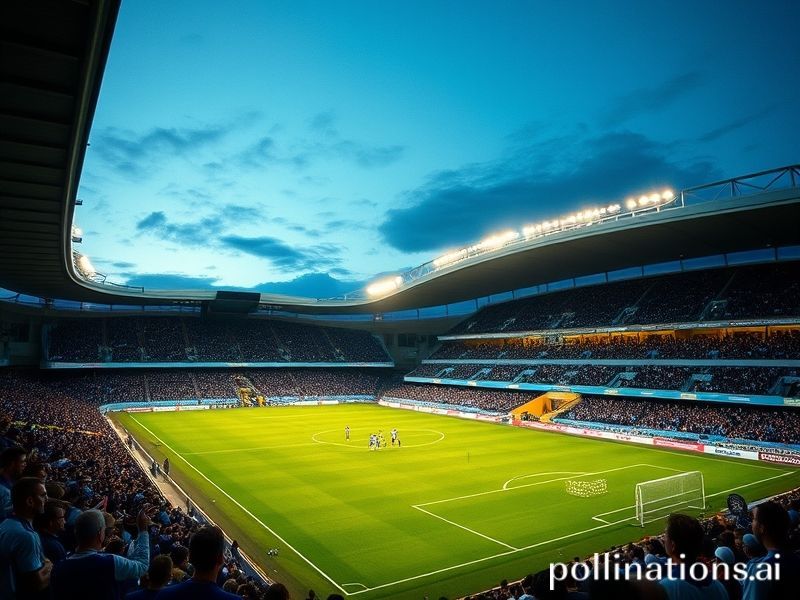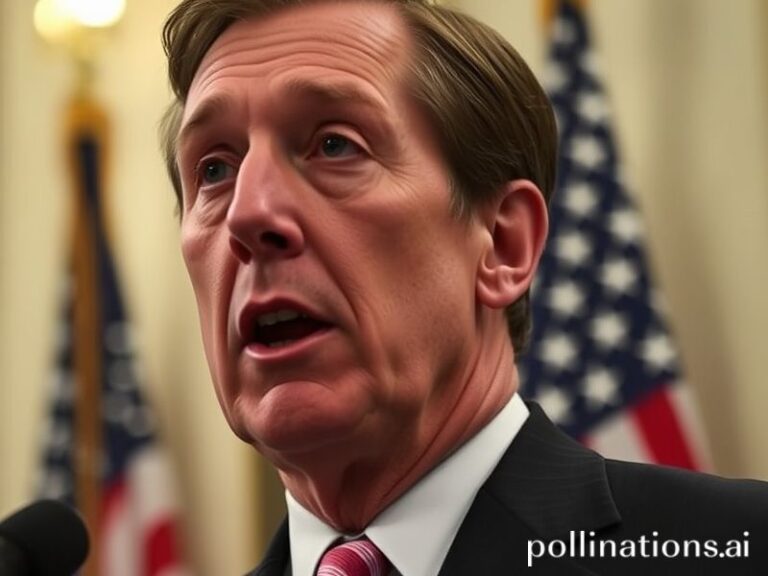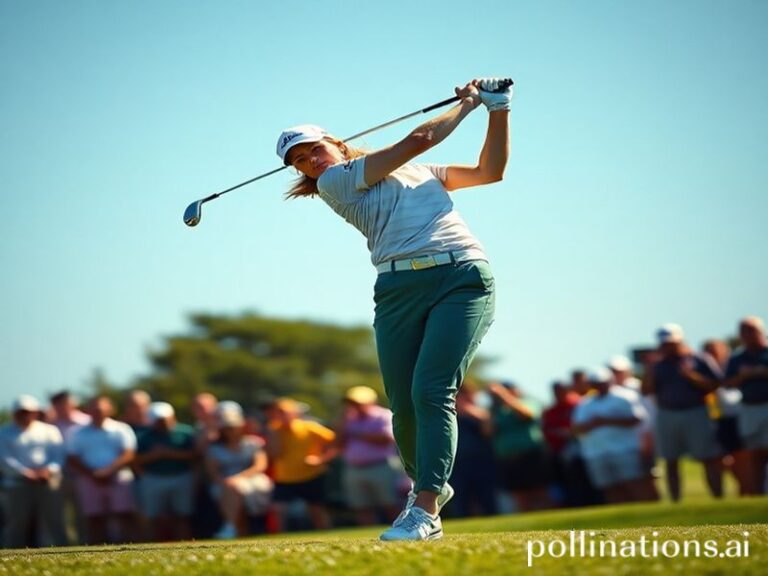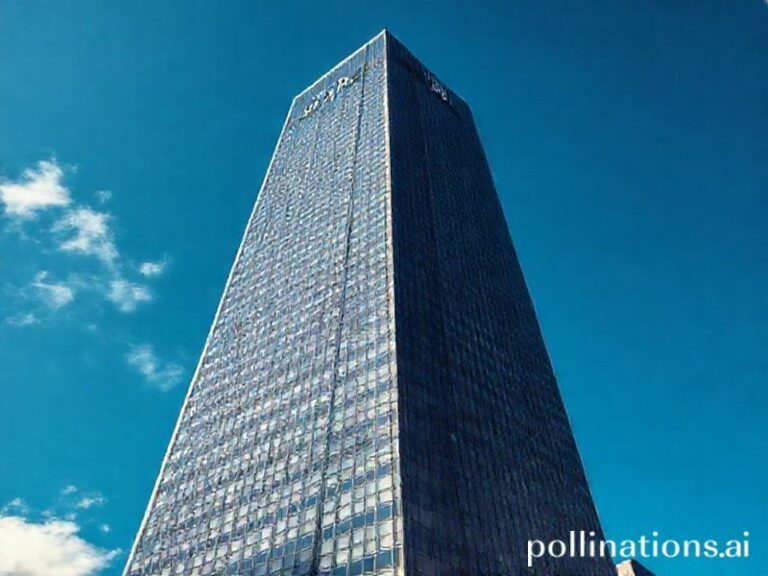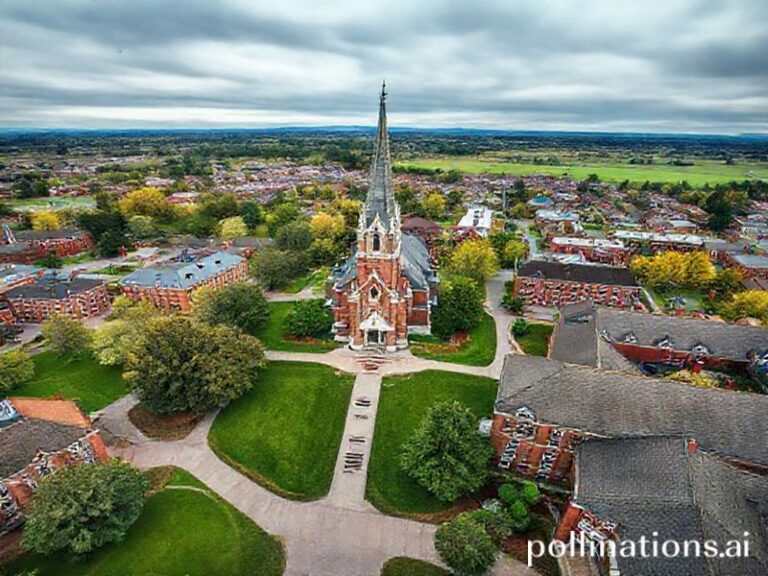Real Oviedo’s Miraculous Promotion: How a Broke Spanish Club Became the Planet’s Favorite Underdog
Real Oviedo: Spain’s 96-Year-Old Relegation Survivor Becomes a Global Parable on How Not to Run Anything
By Our Man in the Cheap Seats, somewhere between Gijón and existential despair
Oviedo, Asturias – While the planet debates whether AI will replace us before the oceans finish the job, a modest club in northern Spain is quietly demonstrating that human incompetence remains the most renewable resource of all. Real Oviedo, founded in 1926, has spent the better part of a century perfecting the art of fiscal hara-kiri, only to be repeatedly rescued by a diaspora of nostalgic locals, Mexican moguls, and, inexplicably, Carlos Slim—proof that the universe enjoys a tragicomedy as much as the next binge-watcher.
To the uninitiated, Oviedo’s recent 2-1 playoff final win over Espanyol—yes, the same Espanyol whose budget could bankroll a medium-sized Balkan nation—merely returned them to La Liga after a 21-year sabbatical in the wilderness. To the rest of us, it was a morality play with streaming rights. The victory means Spain’s top flight will again feature a club whose 30,000-seat Estadio Carlos Tartiere sits in a city of barely 200,000 souls, a statistical imbalance normally reserved for Scottish islands or American megachurches.
Globally, the promotion is being read like a Rorschach test. In Argentina, pundits cite Oviedo as evidence that fan equity can defeat macro-economic collapse—handy rhetoric when your own currency is worth less than the paper Messi uses for autographs. Across the Rhine, German economists point to Oviedo’s 2012 share issue—€2.3 million raised from 25,000 micro-investors in 50 countries—as proof that crowdsourcing can work, provided you later invite a telecom billionaire to underwrite the shortfall. Meanwhile, in post-Brexit Britain, the tale is weaponized by whatever side needs reminding that things could be worse: “At least we’re not administrating a football club twice in one decade.”
The broader significance? Real Oviedo is a living WHO warning about the contagious nature of hubris. During the 1990s the club spent like a Russian oligarch on a deadline, importing the Bulgarian national team and a Brazilian striker whose surname, Bobo, now feels like editorial commentary. Debts hit €45 million; players were paid in supermarket vouchers; the tax man seized training cones. Administration arrived in 2003, repeated encore in 2012. Each time, the club rose, Lazarus with a worse credit rating, because enough people worldwide preferred the illusion of hope to the certainty of closure. Sound familiar? It’s the same business model that keeps cryptocurrencies, TED talks, and the United Nations afloat.
Yet there is something admirably stubborn in Oviedo’s refusal to die. Their academy once produced Juan Mata and David Villa, proving the region can cultivate talent even if it can’t balance a checkbook. The current squad contains seven homegrown players, an endangered species in an era when Premier League academies bus in 12-year-olds like Silicon Valley coders. For emerging football nations—India, Uganda, the whole pay-to-play archipelago—Oviedo offers a sustainable fantasy: stay local, export stars, import remittances, repeat until FIFA changes the rules again.
Of course, sustainability is relative. The club still owes back taxes like a Greek pensioner, and television revenue will barely cover the laundry bill for Barcelona’s mascots. La Liga’s new salary cap acts as a financial guillotine, ensuring Oviedo’s budget remains somewhere between Valencia and a Segunda side that’s been mugged. Survival will depend on whether the global fanbase—many of whom discovered the club via a FIFA video-game Easter egg—can be converted from digital avatars to season-ticket holders willing to fly 5,000 miles to watch a 0-0 draw with Getafe. Spoiler: they won’t.
Still, for one summer, Real Oviedo allows us to pretend that stories have happy endings, that community beats capital, that a second-division club can climb back into the big time without selling its soul or its stadium naming rights to a cryptocurrency exchange. Enjoy the illusion while it lasts. By Christmas, when Madrid and Barcelona are done feasting on them, Oviedo will likely be bottom of the table, the municipal coffers will be emptier than a politician’s promise, and Carlos Slim’s phone will divert to voicemail. But that, too, is a lesson: in a world hurtling toward climate, demographic, and geopolitical cliff edges, we are all, in some sense, Real Oviedo—hanging on, hoping for away goals, and praying the bailout arrives before the final whistle.

